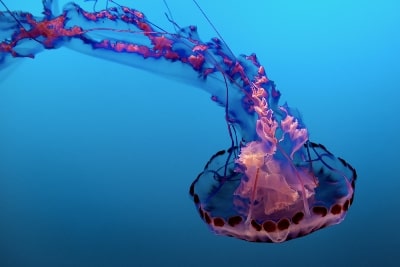A Degree in Marine Biology Can Open Doors to a Variety of Career Opportunities

If you’re passionate about the ocean and the creatures that live in it, a degree in marine biology could be the right path for you. It offers a strong foundation in modern biological sciences that will open the doors to a variety of career opportunities.
Whether you’re interested in field work, academic research, laboratory work or consultancy, there’s something for everyone with a degree in marine biology.
What You’ll Learn
Marine biology is the study of the ocean and its ecosystem. It’s a broad field that includes everything from how the chemical makeup of water to the geology of oceans to fish, plants and animals that thrive in these environments.
If you’re fascinated by the vastness of the ocean and all of the life that lives there, a degree in marine biology is perfect for you. You’ll learn how to protect and manage the oceans, and all of the life that inhabits them.
You’ll also learn how to work with all kinds of organisms in a variety of settings, from an aquarium to a wildlife department. You’ll also be able to choose your own career path in marine biology, depending on what interests you the most.
Coursework
If you’re interested in marine biology, you’ll need to complete a variety of coursework. Some courses are general, while others focus on specific aspects of the field.
Students should also be prepared for lab work and fieldwork, as these are important parts of the educational experience. Additionally, they may want to consider participating in a research program.
Graduate school is another option for those who want to continue their education. Doctoral programs require more extensive study and research, but they can be very helpful for marine biologists who wish to pursue a career in academia or a high-level research role.
As with most undergraduate careers, it is important to choose a degree program that fits your interests and career goals. You’ll want to look at the school’s curriculum, coursework, cost and location.
Fieldwork
A degree in marine biology requires a variety of fieldwork opportunities. These can include courses in oceanography, invertebrate zoology, aquarium maintenance, field biology and unique scuba diving courses like coral reef ecology and research diver methods.
The main value of fieldwork is that it enables students to understand their subject more deeply by experiencing the’real world’. This is particularly true of geomorphology.
Lab Work
Many marine biology degrees require students to conduct lab work on seawater, fish, corals and other organisms. This can involve scuba diving, snorkeling and collecting data on animals and their behavior.
In the laboratory, students learn to use microscopes and other scientific equipment. They also study the chemistry of water, fish and other ocean creatures.
Most of the top colleges and universities offer a degree in marine biology, which can prepare you for a career in marine science. Some schools even have graduate programs.
Research
Marine biology research involves asking a question, collecting data, analyzing that data and presenting it to a wider audience. It’s conducted by faculty, postdoctoral fellows, graduate students and technicians.
A bachelor’s degree in marine biology prepares you for a wide range of career options, including teaching, environmental consulting and aquaria management. It also provides the foundation for pursuing a master’s degree. A master’s degree in marine biology requires a more focused focus, which often means choosing a specific area of study. For example, a student interested in marine mammals might choose to study their behavior and conservation or their diseases and infections. This would require taking courses in that area of study, as well as additional electives related to their chosen area. In addition, they may participate in laboratory practicals that will give them experience conducting experiments and following research protocols.